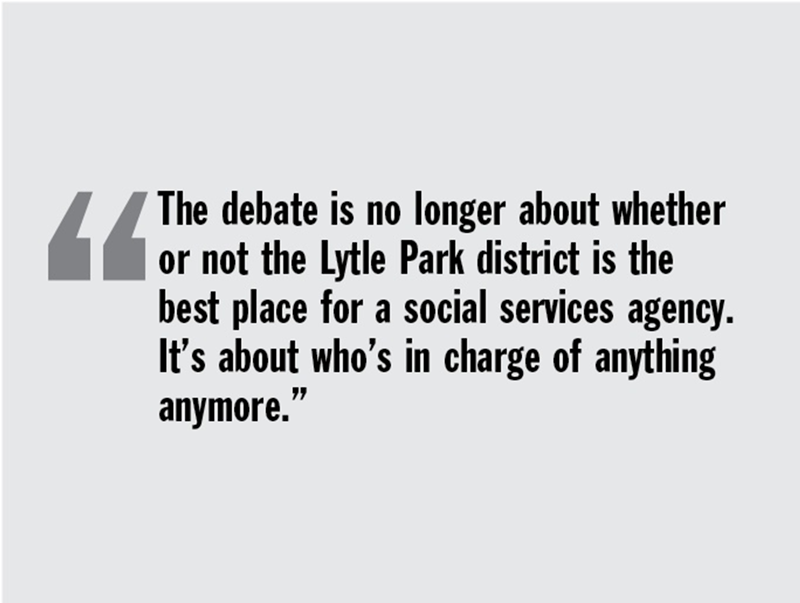“Joe” was a married father of two who for an unspecified amount of time engaged in anonymous sex with hundreds of men. But with the help of Prodigal Ministries, the local organization offering support for unwanted same-gender attractions, Joe was transformed from a highly successful man-sexer to back-to-normal husband/father. This anecdote, which is offered on the homepage of Prodigal Ministries’ website, contains no mention of how long it took for Joe to have sex with so many men — only the fact that the high volume of homosexual encounters was the root cause of Joe finding himself at the lowest point of his life.
We have no way of knowing how Joe’s life might have taken shape if he had slept with fewer people outside his marriage (it’s probably safe to assume that casually sleeping with hundreds of women wouldn’t have gone over well with his wife and children, either). Maybe Joe is just really attractive and can’t keep the dudes off of him — when he walks into the grocery store homosexuals spring from the aisles, pants unbuttoned, their non-genetic gay tendencies grabbing hold of him with the strength of 1,000 naked women.
The missing details of Joe’s homosexual experience are no matter to Prodigal Ministries, as it lovingly and gently helped him turn his life around, with the help of Jesus Christ, of course.
In addition to being one of the simplest story structures in existence and including the most generic male name in the history of American made-up stories, the saga of Joe, according to Prodigal Ministries, is one of hundreds of such glorious restorations that have occurred with the help of Prodigal Ministries and Jesus. And it all takes place on William Howard Taft Road, right over by the White Castle.
If you’re growing tired of this ridiculous story — and between its cliché premise, lack of character development and unreliable narrator, it would be completely understandable — then you know what it’s like to be one of CityBeat’s employees who thinks Prodigal Ministries advertising in our publication is a really bad joke.
Unfortunately, the advertisement is not a joke, and neither is the story that was just described. This week’s issue of CityBeat is the sixth in a row that has included a quarter-page advertisement for the local organization. It is its final appearance as part of a contract signed in January. I don’t know if the contract will be renewed.
There has been considerable response to CityBeat’s decision to accept the advertisement for what many have called “pray the gay away” counseling. Longtime CityBeat readers have left voicemails, sent emails and offered their disappointment on our Facebook page. Some have sworn to stop reading the publication and others have threatened to stop distributing it.
The decision to accept the advertisement was made by CityBeat’s publisher, Dan Bockrath, who determined that it was not his place to pass judgment on the organization and considered the precedent that would be set by denying a legitimate business the ability to communicate a message he personally disagreed with. Many of CityBeat’s employees disagreed with his decision.
Reparative therapy is not only harmful to individuals often struggling to find acceptance of their sexual identity — the concept itself and the notion that homosexuality is a curable ailment is offensive. CityBeat’s editorial staff has spent an extensive amount of time trying to come up with a way to address this issue. We are privileged to have the power to speak out against intolerance and inequality and have a long history of fully supporting LGBT people and organizations. But how righteous can we act right now, knowing that some of our best work has actually created a market for organizations like Prodigal Ministries that are disrespectful of the people we are trying to support and protect?
As the editor of the publication, I cannot step up on my soapbox and ask everyone to understand that I didn’t do this without also offering my support for CityBeat going forward. But if I choose to ask a reporter to investigate similar counseling services or to debunk the myth of reparative therapy, I’ll acknowledge that it was at least partially motivated by our company generating revenue by accepting an advertisement from an organization that doesn’t respect that some people are gay. These issues will not stop us from continuing to thoughtfully cover issues important to the LGBT community.
Here’s what I can do now: publicly address what has occurred, reiterate CityBeat’s sincere respect for LGBT people and guarantee that our editorial mission will continue to be a driving force for equality in Cincinnati and beyond.
There are enough people in this city disrespecting people who are different, and it pisses us off. We’re glad to know that there is such a strong community willing to speak out for the well-being of LGBT individuals. And we will continue to respond to inequality and injustice in the strongest ways possible.
— Danny Cross, CityBeat Editor


